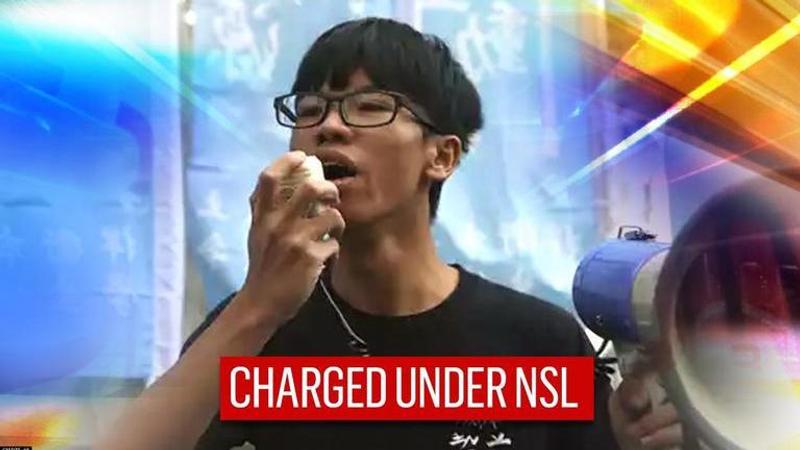Published 20:38 IST, October 29th 2020
Hong Kong pro-independence activist Tony Chung charged with secession
Tony Chung from Hong Kong has been charged with secession under the draconian national security law after he tried to seek asylum in the US Consulate.

Tony Chung, the 19-year-old former leader of the pro-independence group in Hong Kong has been charged with secession under the draconian national security law after he tried to seek asylum in the United States Consulate. Chung was arrested from a coffee shop near the US Consulate on October 27 and was produced at a court on Thursday charged with secession, money laundering offences, and publishing seditious material.
Chung, whose next court appearance is set for January 7, was first arrested under the Beijing-imposed national security law in July this year and became one of the first set of political figures to be arrested under the controversial law. Chung was later released on bail on July 31. Chung is known for co-founding Studentlocalism, the pro-independence student organisation which seeks to establish an independent Hong Kong.
Chung has become the second person to be charged under the new security law after 23-year-old Tong Ying-ki, who was arrested and charged in July this year for riding his motorcycle into a group of policemen with a pro-democracy poster. Several other activists have been arrested under the law but no one has been charged so far apart from these two.
Hong Kong protests
The national security law that mainland China imposed in Hong Kong in June this year prevents people from organising pro-democracy and pro-independence protests. The law also prevents people from raising or publishing any slogan related to pro-democracy movements. The law came into force after Chinese President Xi Jinping on June 30 signed the bill into Act.
This came in the backdrop of protests and movements that were sparked after Hong Kong tried to introduce an extradition bill that would have allowed the extradition of Hong Kong residents to China, which doesn't have a formal agreement with the City despite it being one of its territories. The extradition bill triggered widespread protests, which forced the government to withdraw it.
Updated 20:38 IST, October 29th 2020




